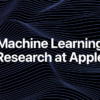Recent discussions among leaders in the public sector have highlighted the growing role of artificial intelligence in government decision-making. This dialogue, which was sparked by a series titled “Thinking About AI,” underscores the increasing importance of AI technologies in shaping public policy and administration. It is clear that serious conversations about the intersection of AI and governance are not just timely but necessary.
Engaging with a senior public service official, I found our exchange to be both earnest and insightful. We took the time to explain our respective views while also exploring the differences in our thinking. Such discussions have become vital as governments around the world consider how to integrate AI into their operations.
The Growing Importance of AI in Governance
The application of AI in public sectors is emerging as a crucial trend. Several governments are now exploring the benefits of utilizing AI systems to improve efficiency and decision-making processes. For instance, AI can analyze large datasets far quicker than human analysts, enabling governments to respond to social issues more effectively. As public servants become more familiar with these technologies, the potential for AI to transform governance becomes increasingly clear.
One significant challenge lies in ensuring that AI implementations are ethical and transparent. Concerns about bias in AI algorithms and the potential for misuse of data make it imperative for public servants to engage in thoughtful discussions about the implications of these technologies. The conversations we have today can set the foundation for responsible AI use in the future.
Navigating the Ethical Landscape
The ethical considerations surrounding AI in government are complex and multifaceted. Discussions can reflect on historical contexts where technology has either aided or hindered societal progress. For example, the use of AI in surveillance raises questions about privacy and civil liberties. As such, it is crucial for those in the public sector to navigate this landscape carefully, balancing the benefits of AI with potential risks to individual rights.
Moreover, as AI technology continues to evolve, it becomes essential for policymakers and public servants to stay informed about advancements in AI, ensuring they can make educated decisions that reflect the best interests of their constituents. Understanding the capabilities of AI, such as machine learning and neural networks, is key to implementing these technologies effectively in public service.
Overall, the dialogue surrounding AI in government is evolving, but it must include diverse perspectives to be constructive. Engaging various stakeholders, from technology experts to civil advocates, will be crucial in developing frameworks that guide the ethical use of AI in public service.
As our conversation transitioned from the intricacies of AI to topics like Bruce Springsteen, it became evident that the urgency of our discussion about AI’s implications in governance is a priority that cannot be overlooked. Striking the right balance between innovation and ethical considerations will be essential for fostering trust in the technologies that increasingly dictate our societal structures.
In conclusion, as discussions about AI’s role in government continue to unfold, they will shape the future of public administration and the relationship between citizens and the state. The commitment to engaging in meaningful dialogue will play a pivotal role in guiding AI technologies toward beneficial outcomes for all.
See also Pharmaceutical Giants Use $4M Dark Money to Influence Republican Elections, Reveals Issue One
Pharmaceutical Giants Use $4M Dark Money to Influence Republican Elections, Reveals Issue One Paul McCartney Protests UK AI Copyright Stance with ‘Silent’ Track on New Album
Paul McCartney Protests UK AI Copyright Stance with ‘Silent’ Track on New Album Welsh Government Launches AI Plan to Boost Public Services and Economic Growth
Welsh Government Launches AI Plan to Boost Public Services and Economic Growth Paul McCartney, Sam Fender, Kate Bush Join AI Protest Album, Urging Copyright Protections
Paul McCartney, Sam Fender, Kate Bush Join AI Protest Album, Urging Copyright Protections ALX, Anthropic, and Rwanda Launch AI Companion Chidi to Transform Education Across Africa
ALX, Anthropic, and Rwanda Launch AI Companion Chidi to Transform Education Across Africa




































































